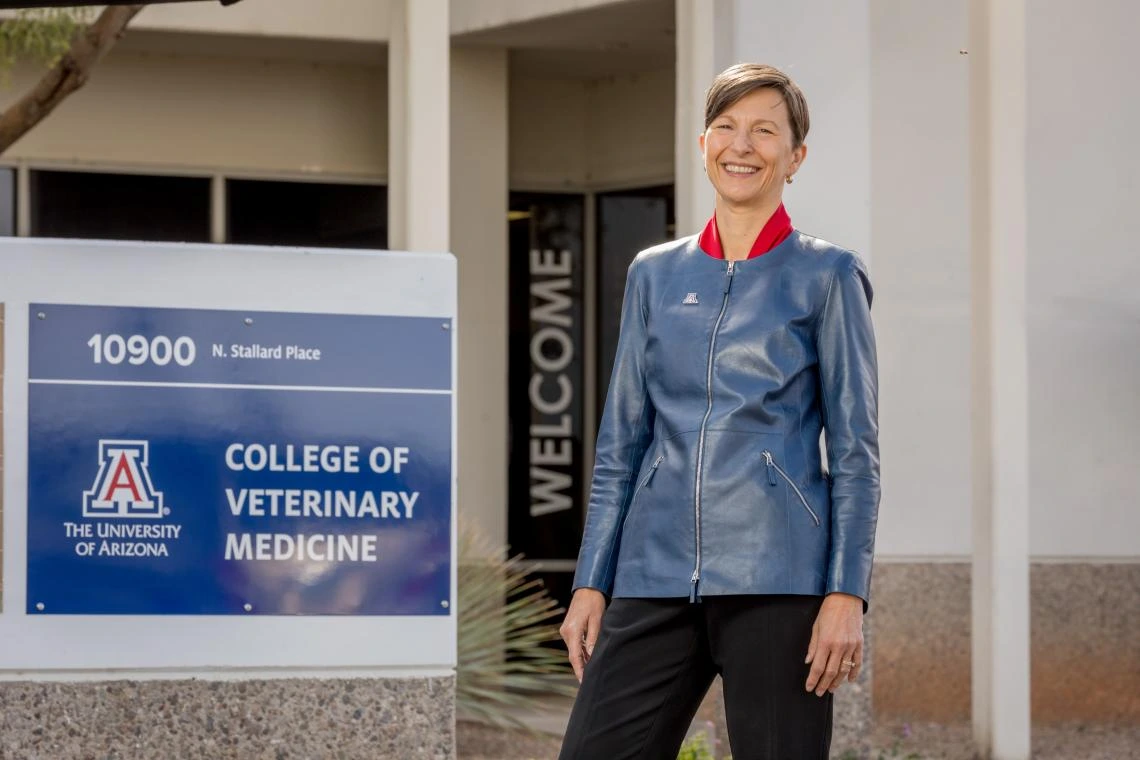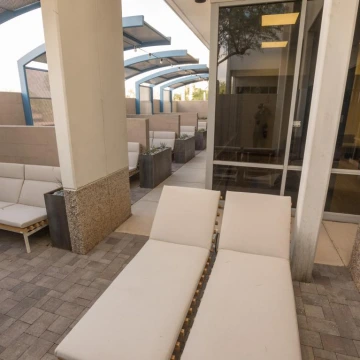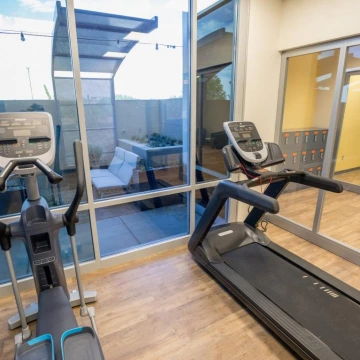Making Wellness a Priority in Veterinary Education
A Gift Helps the College Answer the Call.

The University of Arizona College of Veterinary Medicine admitted its first class with resources and plans in place for helping students manage and maintain wellness.
Those resources include access to a purpose-built wellness center, thanks to a private gift. The center is a physical manifestation of the college’s commitment to treating wellness as a teachable professional skill, says Dean Julie Funk.
“Many people don’t realize that the veterinary profession as a whole is in a wellness crisis. Students need to learn strategies to take care of themselves and support their colleagues,” Funk says.

The Mary Jane McMillen Crowe Student Success & Wellness Center is a resource-rich place where students can explore ways of managing physical and mental health. Veterinary students can visit the center for exercise, yoga, and to meditate and enjoy a healing garden.
Two learning specialists, a psychologist and a counselor are available to help students navigate academic and personal challenges. Programs focus on stress management, relationships, substance abuse and suicide prevention.
Funk and her leadership team consulted with experts from the Association of American Veterinary Colleges and from other universities on integrating wellness into the academic program as fully as possible.
Case studies, for example, include planning how students will handle their own and their colleagues’ well-being after having to make difficult treatment decisions.

College leaders have also planned for students’ social needs. The class is broken into professional learning communities, groups of 10 students and a faculty mentor. It’s another way to round out their support system, says Tanisha Price-Johnson, the college’s associate dean of student affairs.
“We’re taking into account who we’re shaping these students to be as whole people,” Price-Johnson says.
Instilling knowledge students will use for the rest of their lives is the goal, Funk says, and the Crowe Foundation’s gift came at a critical time.
“There was a call for our college and all of our profession to address wellness. Now it's even more critical, so I couldn't be more grateful to have this resource for our students,” Funk says.
The Power of Giving
The College of Veterinary Medicine was established with a grant from the Kemper and Ethel Marley Foundation. Private gifts have also supported simulated learning and hands-on learning at the Campus Agricultural Center. Giving priorities going forward include mobile treatment and education units, pipeline programs and scholarships.

